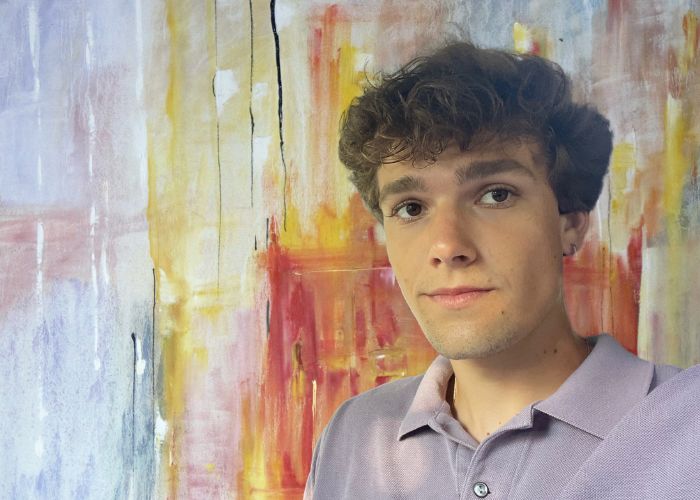
Every year, the Bailey COE awards fellowships to fund research opportunities for Wesleyan students across all majors and class years. Most recently, the COE awarded nearly 40 summer fellowships. One of those fellows, Milo Chamberlin ’26, is a junior majoring in environmental studies and government. He called in to the Bailey COE from his semester abroad in Arusha, Tanzania, to tell us about his summer researching a subpopulation of the endangered North American cougar on a potential development site in Los Angeles’s Verdugo Mountains.
Can you give me an overview of your summer fellowship? How did it relate to your academic interests?
I studied mountain lion conservation in Los Angeles, focusing on a case study of a specific mountain range called the Verdugos Mountains which is at threat from a development project. There’s a company trying to establish a 300-acre project on that land, pending approval from LA City Hall, so I was investigating the legal structures around the development and working with a nonprofit called No Canyon Hills (@nocanyonhills on Instagram). They’ve been tracking a few cougars over the last couple years on the project site. And the project itself is pretty insidious––the developer struck an agreement with City Hall around 18 years ago, and then they got this clearance to avoid any environmental reviews. They also donated a lot of money to the LA City Council, so the developer got a 20-year pass from the California Environmental Quality Act (CEQA), despite there being all these endangered species and forest fires in the site area. So I was focused on how the developers in that area have been able to bypass certain environmental regulations and the role that LA City Council didn’t fulfill in safeguarding the site. Throughout the summer, I was mostly helping out with the nonprofit, consulting on their legal efforts, helping them with tabling, things like that. It was really cool to use the Bailey COE grant money to do stuff I care about.
How did you become interested in this project?
I’m from LA. My friend from high school’s brother was involved with the nonprofit, so I learned about it that way.
Did your work this summer make you think about LA differently?
Yeah. Five LA City Council members in the last five years have been charged with criminal malfeasance, and I’m trying to understand why. Sometimes development in a lot of cities is very corrupt, but this changed the way I think about the interplay of certain political, economic, and environmental systems in Los Angeles specifically.
What do you feel like you learned from working with No Canyon Hills?
Where to start? I think I learned how hard it is to engage in a fight with a developer, but also how important it is. And also how important preserving that mountain range is, and that one community-based nonprofit is the only one doing it. Also, I think a lot of my preconceived notions about indigenous land back movements being inexplicably tied with nonprofit work like this were kind of challenged. Like, what do you do with the land after it was conserved? I originally thought, like, “Oh, their plan would be to give it back to the Tongva and Tataviam people who lived there before.” But really, it’s not that simple. It just made me realize how complicated, how hard it is to actually engage in a fight like that, just because of the privatization of all property. Taxing it is not so easy. So I learned a lot, especially about how important grassroots activism is, just tabling and putting up flyers and talking to people in the local community.
How did this experience impact what kind of work you want to do in the future?
I think it made me want to study political ecology. I originally got into it wanting to study legal structures and legal sources around conservation, but also I think the social factors are really important. Things like political nepotism and the role of grassroots activism, which are two dichotomous things, aren’t really discussed when you look at just strictly legal structures around conservation. So it’s interesting to think about more of a broad study, like political ecology and an anthropological perspective.
Is there anything else you want to share? Any suggestions for future COE summer fellows?
You have to be realistic about what you want to do. You kind of want to do everything sometimes, all the research and all the activism. It’s like, “Oh, if I had an infinite amount of money, infinite amount of time,” right? But I’m really happy with what I was able to do.